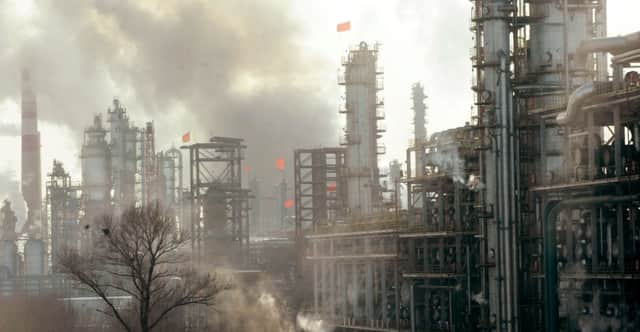Action needed to avoid ‘catastrophic’ climate change


Output of carbon dioxide and other climate-changing gases has increased in recent years, despite efforts to tackle global warming, the latest study from the UN’s Intergovernmental Panel on Climate Change (IPCC) has found.
It is still possible to keep global temperature rises to no more than 2C above pre-industrial levels by the end of the century, the level at which it is thought dangerous impacts of climate change will be felt.
Advertisement
Hide AdAdvertisement
Hide AdBut substantial reductions in greenhouse gases will be needed, through large-scale changes to energy supplies and use, as well as curbing deforestation and planting forests.
Emissions need to be cut by 40 to 70 per cent on 2010 levels by the middle of the century and to near zero by 2100, to make it likely temperatures will not go above 2C, the report will warn.
This will require a shift from investment in fossil fuel and a three- or four-fold increase by 2050 in the share of energy from low-carbon sources such as renewables, nuclear and power plants fitted with technology to capture and store carbon underground.
Samantha Smith, leader of WWF International’s global climate and energy initiative, said: “The IPCC is clear that acting on climate change is possible, beneficial and affordable. If we act now, costs will be only a very small fraction of global economies.
“Those who say it’s too hard and too expensive are wrong. But it is very urgent – without immediate action, costs will rise and impacts will too.
“The first, critical step is changing investment flows. Any investor who looks at this report will have to reach an obvious conclusion: It’s time to pull your money out of dirty fossil fuels and put it into renewable energy and energy efficiency.”
Christian Aid’s senior climate change advisor, Mohamed Adow, said: “The good news is this report shows there is still time to avoid catastrophic climate change, but only if we stop stalling.
“Fossil fuel is the dirty, archaic energy of the past which has caused the climate crisis. But we have the cards in our hand to change the game in our favour. By replacing filthy fossil fuels with clean, renewable energy we can put the world on a safe and prosperous path.”
Advertisement
Hide AdAdvertisement
Hide AdHe added: “The world’s poorest nations are in need of economic development. But they need to be helped to leapfrog dirty energy and develop in a way which won’t entrench their poverty by making climate change worse.
With technological and financial help they can harness their natural, clean, energy resources and improve the lives of millions.”
By the end of the century fossil fuel power plants without carbon capture and storage will need to be virtually phased out.
Measures will be needed to make transport cleaner, improve energy efficiency in homes, offices and industries and change behaviour to reduce energy demand, the report said.
Ambitious efforts to cut emissions could also involve growing crops which take in carbon dioxide and then burning them for energy in power plants fitted with carbon capture and storage technology, to actively take emissions out of the atmosphere.
Steps need to be taken immediately as delaying action even to 2030 increases costs and makes it harder to keep temperatures from rising to dangerous levels, the report warned.
Emissions have increased by 2.2 per cent a year between 2000 and 2010, compared to 0.4 per cent a year between 1970 and 2000, with the recession in 2007-08 only temporarily putting the brakes on.
Without action, climate change would increasingly threaten security, health and food supplies, exacerbate poverty and damage species and habitats, while the world is at risk of temperatures soaring 3.7C to 4.8C by 2100 if greenhouse gases are not curbed.